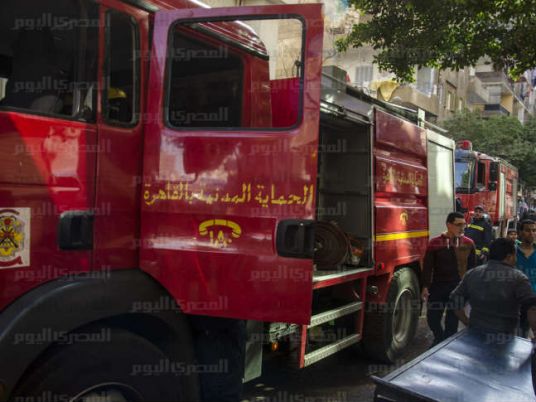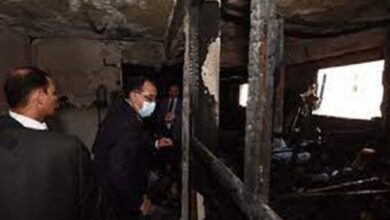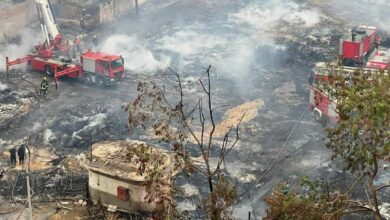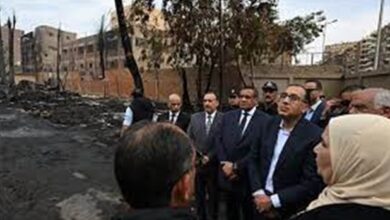The Egyptian Theater House, along with the Egyptian Civil Defense force, in an effort to avoid the recurrence of tragic fire accidents which have endangered lives and damaged important cultural spaces, is securing both private and state-owned theaters by implementing stricter safety standards.
New automatic top-of-the-line firefighting technologies, along with the traditional systems, are being used to protect theaters and to ensure quick contingency plans in order to minimize risks.
Egyptian theater safety standards were called into question following a major accident at the Bany Swaif theater in September 2005, which resulted in 32 dead and 37 injured. The catastrophic fire started because a candle, lit on stage as part of the performance, was not extinguished properly. The stage was not equipped with sand buckets and the floor and fabrics weren’t chemically treated to prevent the spread of fire. The theater’s layout, which included only one exit, added to the catastrophe.
Three years later, in September 2008, the National Theater caught fire, leading to ten people injured and extensive damage to the historic building. The National Theater was built in 1921 and served as a storage site for important documents from pioneers of Egyptian theater like Geoge Abyad and Youssef Wahby.
The National Theater accident was attributed to electrical damage and, although the theater had an automatic fire alarm system, the fire was not extinguished in time to prevent injury or damage. At the time experts assumed that theater staff did not hear the alarm or that the system had detection errors.
Following these accidents, local theaters began taking precautions. Al-Salam Theater, located on al-Kasr al-Eini Street, installed a complete firefighting unit in 2009, covering the premises with smoke detectors connected to three detection boards made visible to administrators and security. The smoke detectors are supported by a sprinkler system which is fed by five large water tanks and backed up by an independently generated electricity line to support the water pumping system during power outages. Critical spots, like the electrical room and the stage, are secured with seven special automatic fire extinguishers.
“Today’s automatic fire detection systems are designed to report emergencies in 30 seconds to the alarm boards in the building with a very loud sound, while automatically reporting to the nearest fire station through a direct connection. Meanwhile, the civil dense force is informed and the building’s internal automatic system fights the fire and should extinguish it,” said Colonel Ashraf Amin, general manager of al-Salam Theater.
Al-Salam Theater also employs a manual system in accordance with civil defense safety standards. The theater is equipped with 80 fire extinguishers, spaced 20 meters apart. Additionally, the stage floor and seven curtains are chemically treated to prevent the spread of fire.
“The theater management highly believes that manpower is as important as our automatic safety system. This is why we have a highly trained team with security guards, two firefighters who are available around the clock, and a complete maintenance team of electricians and plumbers to provide support whenever needed,” Amin added.
Over at Galal al-Sharkawy’s theater, safety consultant engineer Ezzat Arafa is finalizing his work by testing a new firefighting unit. The unit was built over the last six months and cost LE3 million. The theater also has a complete automatic firefighting unit like that used at al-Salam, with fire detection and sprinkler systems.
“Galal al-Sharkawy insisted on following all the civil defense department safety measures. He even requested higher standards to ensure the complete safety of his theater. We changed the entire electricity panel and extended the smoke detector and water sprinkler systems to all administrative offices and all the rooms in the building,” said Arafa.
The theater’s stage, chairs, carpets and curtains are now chemically treated to prevent the spread of fire, and trials have proven high safety standards. Theater employees are trained to guide the audience to the theater’s two emergency exits.
Other private theaters, such as El-Sawy Culture Wheel, are planning to install similar automatic fire systems.
El-Sawy Culture Wheel currently uses a manual system, relying on a firefighting team that is available around the clock along with 68 fire extinguishers including an automatic fire extinguisher in their electrical room. The space is outfitted with seven emergency exits and three water hoses in each theater hall.
Hattem Allam, the executive manager of El-Sawy Culture Wheel, explained, “At El-Sawy Culture Wheel our first priority is safety and we solve problems quickly. Once we discover a threat, we act as fast as possible."




